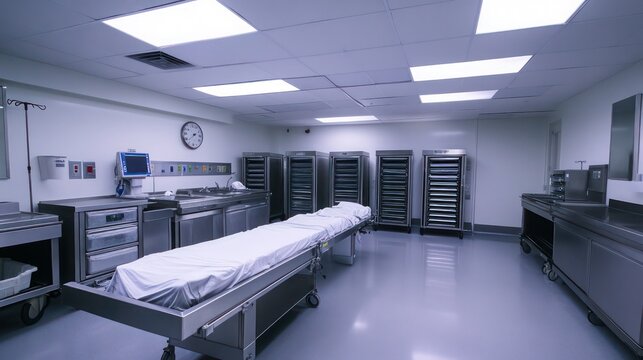Facilities
Home Facilities
FACILITIES
"Comprehensive Medical Facilities for Quality Care and Patient Comfort"
ECG
Electrocardiography (ECG) is a vital diagnostic tool used in hospitals to assess heart health by recording the electrical activity of the heart.
ECGs help detect irregular heart rhythms, heart attacks, and other cardiac conditions. They are commonly used in emergency care, routine checkups, and preoperative evaluations. Hospitals utilize advanced ECG technology to monitor patients, guide treatment decisions, and ensure timely medical interventions for optimal cardiac care.

CT-96 SLICE SIEMENS
The CT-96 Slice Siemens scanner is an advanced imaging system designed for high-precision diagnostics, offering detailed and rapid scans for accurate medical assessments.
With its high-speed scanning and superior image quality, the CT-96 enables precise detection of conditions related to neurology, cardiology, oncology, and trauma care. It enhances patient safety with reduced radiation exposure while ensuring faster diagnosis and efficient treatment planning.
ULTRASOUND 4D
Ultrasound 4D in hospitals provides real-time, high-resolution imaging for detailed visualization of fetal movements, organ functions, and soft tissues.
It enhances prenatal care by offering live video-like imaging of the baby in the womb, aiding in early diagnosis of abnormalities. Additionally, 4D ultrasound is used in various medical fields, including cardiology and oncology, for precise evaluation of internal structures, ensuring accurate diagnosis and improved patient care.
MODERN LAB
Modern hospital laboratories are equipped with advanced diagnostic technology to provide accurate and efficient medical testing for patient care.
These labs perform a wide range of tests, including blood analysis, microbiology, pathology, and genetic screening, ensuring timely and precise diagnosis. With automated systems and expert technicians, modern labs play a crucial role in disease detection, treatment planning, and overall healthcare management.
DIGITAL X-RAYS
Digital X-rays provide high-quality imaging for accurate diagnosis and treatment planning in hospitals.
Unlike traditional X-rays, digital radiography offers faster image processing, reduced radiation exposure, and enhanced image clarity. It is widely used for detecting fractures, infections, tumors, and other medical conditions, enabling healthcare professionals to make precise and timely decisions for patient care.

PALLIATIVE CARE
Palliative care in hospitals focuses on providing relief from pain, symptoms, and stress associated with serious illnesses, improving the quality of life for patients and their families.
This includes comprehensive medical, emotional, and psychological support for individuals with chronic or life-limiting conditions. The care team works to manage symptoms, offer guidance on treatment options, and provide compassionate support tailored to each patient’s needs.

24/7 AMBULANCE SERVICE
Our hospital provides a 24/7 ambulance service, ensuring rapid emergency response and safe patient transportation at any time of the day or night.
Equipped with advanced medical facilities and staffed by trained paramedics, our ambulances are prepared to handle critical situations, from accident emergencies to urgent medical transfers. We prioritize swift response times and patient safety, offering seamless coordination with our hospital’s emergency care team.

MORTUARY
The mortuary in hospitals is a specialized facility for the respectful storage and handling of deceased individuals before further arrangements are made.
It ensures proper preservation, identification, and documentation of bodies while adhering to legal and medical protocols. The facility is equipped with cold storage units and provides a secure environment for families and authorities to complete necessary formalities with dignity and care.

MOBILE MORTUARY
A mobile mortuary in hospitals provides a temporary and hygienic solution for the dignified storage of deceased individuals before further arrangements are made.
Equipped with refrigeration units, these facilities help in preserving bodies, preventing decomposition, and maintaining sanitary conditions. Mobile mortuaries are essential during emergencies, mass casualties, or when hospital morgue capacity is exceeded, ensuring proper management with respect and care.

